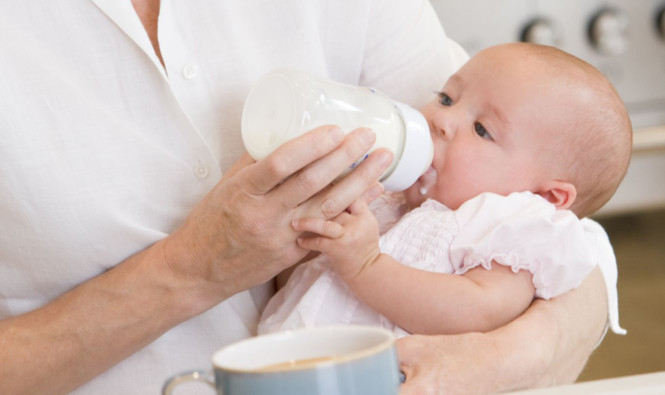The number of Fife women over 40 having babies has risen fourfold in just 22 years.
New figures have revealed that birth rates among women aged between 40 and 44 increased by 190% between 1991 and 2013.
At the same time, the number of new mums aged 35-39 increased by 143% and rates among those between 30 and 34 almost doubled making it now the most common age group in which to have a baby.
The statistics, revealed by Fife’s director of public health Dr Edward Coyle, are similar to the national picture and underline the shift towards older motherhood.
The availability of better contraception and other medical advancements which allow women to choose when to become pregnant are said to have contributed to the change.
Dr Coyle’s figures show that the number of younger women having babies has now decreased.
For the first time, in 2013 fewer babies were born to mothers aged 25-29 (1093) than aged 30-34 (1108).
The number of teenage mums and those aged 20-24 have fallen by more than a quarter.
The total number of live births in Fife fell to its lowest in seven years in 2013, when there were 3872 babies born.
Despite this, birth rates in the region remain higher than the Scottish average with 55.9 per 1000 women compared to 53.7 per 1000 nationally.
Within Fife, birth rates are highest in the Kirkcaldy area and lowest in north east Fife.
Dr Coyle said: “Women in Fife are now choosing to have babies later in life.
“Fertility rates for women in the three age groups beyond 30 have all increased since 1991, with rates among women aged 35-39 and 40-44 increasing by 143% and 190% between 1991 and 2013.
“During the same time period rates among women aged 30-34 have almost doubled whilst rates among women aged 15-19 and 20-24 have decreased by more than a quarter.
“Women aged 25-29 have had the highest fertility rates in Fife, however rates among this age group have also decreased since 1991 and in 2013 fewer babies were born to mothers aged 25-29 than aged 30-34.”
NHS Fife’s clinical director of planned care, Steven Monaghan, said many women were focusing on their careers before deciding to have children.
“The availability of effective contraception provides women with greater choice over when they wish to fall pregnant, and many women are choosing to establish their career aspirations before entering motherhood,” he said.
“Furthermore, advancements in assisted conception and the availability of medical specialists have made it easier for many women, particularly older women, to become pregnant where a natural pregnancy has not occurred.”
